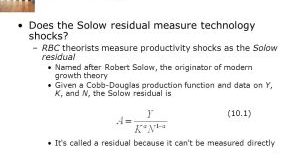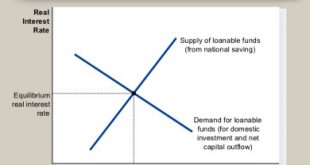Solow’s Nobel Prize lecture One of the achievements of growth theory was to relate equilibrium growth to asset pricing under tranquil conditions. The hard part of disequilibrium growth is that we do not have — and it may be impossible to have — a really good theory of asset valuation under turbulent conditions … One important tendency in contemporary macroeconomic theory evades this problem in an elegant but (to me) ultimately implausible way. The idea is...
Read More »DSGE models — false by construction
DSGE models — false by construction Advances in mathematical tools and in economic theory rapidly changed the landscape. From the perspective of macroeconomics, the streamlined DSGE models of the 1980s begot much richer models in the 1990s. One remarkably successful extension was the introduction of nominal and real rigidities, i.e., the conception that agents cannot immediately adjust to changes in the economic environment. In particular, many of the new...
Read More »True Bromance
[embedded content] Advertisements
Read More »The Lucas critique comes back with a vengeance in DSGE models
The Lucas critique comes back with a vengeance in DSGE models Both approaches to DSGE macroeconometrics (VAR and Bayesian) have evident vulnerabilities, which substantially derive from how parameters are handled in the technique. In brief, parameters from formally elegant models are calibrated in order to obtain simulated values that reproduce some stylized fact and/or some empirical data distribution, thus relating the underlying theoretical model and the...
Read More »The loanable funds fallacy
The loanable funds fallacy The loanable funds theory is in many regards nothing but an approach where the ruling rate of interest in society is — pure and simple — conceived as nothing else than the price of loans or credits set by banks and determined by supply and demand — as Bertil Ohlin put it — “in the same way as the price of eggs and strawberries on a village market.” It is a beautiful fairy tale, but the problem is that banks are not barter...
Read More »Finland ends basic income experiment
Finland ends basic income experiment Europe’s first national government-backed experiment in giving citizens free cash will end next year after Finland decided not to extend its widely publicised basic income trial and to explore alternative welfare schemes instead. Since January 2017, a random sample of 2,000 unemployed people aged 25 to 58 have been paid a monthly €560 (£475), with no requirement to seek or accept employment … The scheme – aimed primarily...
Read More »Tractability hoax redux
A ‘tractable’ model is one that you can solve, which means there are several types of tractability: analytical tractability (finding a solution to a theoretical model), empirical tractability (being able to estimate/calibrate your model) and computational tractability (finding numerical solutions). It is sometimes hard to discriminate between theoretical and empirical, or empirical and computational tractability … What I’d like to capture is the effect of those choices...
Read More »A new paradigm for teaching economics
A new paradigm for teaching economics Don’t let the students know! What we teach them in our intro classes bears little resemblance to how we do economics ourselves … The new paradigm not only provides a more convincing story about how an economy might reach a competitive equilibrium, it also fundamentally alters the nature of that outcome. When lenders and borrowers, and employers and employees, are modelled as principals and agents with asymmetric...
Read More »La Chine — un défi adressé aux théories économiques
La Chine — un défi adressé aux théories économiques Avec l’effondrement de l’Union Soviétique, nombre d’intellectuels avaient anticipé une fin de l’histoire : marché et démocratie allaient remplacer le Gosplan et la domination du Parti Communiste. Depuis 1989, les régimes démocratiques se sont diffusés sur la plupart des continents et la logique du marché semble dominer les choix politiques que, dans le passé, mettaient en œuvre les gouvernements. Les...
Read More »Arithmetic for Austrians
This piece grew from a number of conversations with people of Austrian economic persuasion, mostly Bitcoiners and goldbugs (which these days seem mysteriously to have converged). I thought of calling this "Monetarism for goldbugs", but decided to preserve the mathematical slant of the previous pieces in this series. But it's monetary arithmetic, of course. And as Austrians tend to obsess about "sound money", it is specifically sound monetary arithmetic. (Note: Someone has pointed out on...
Read More » Heterodox
Heterodox









